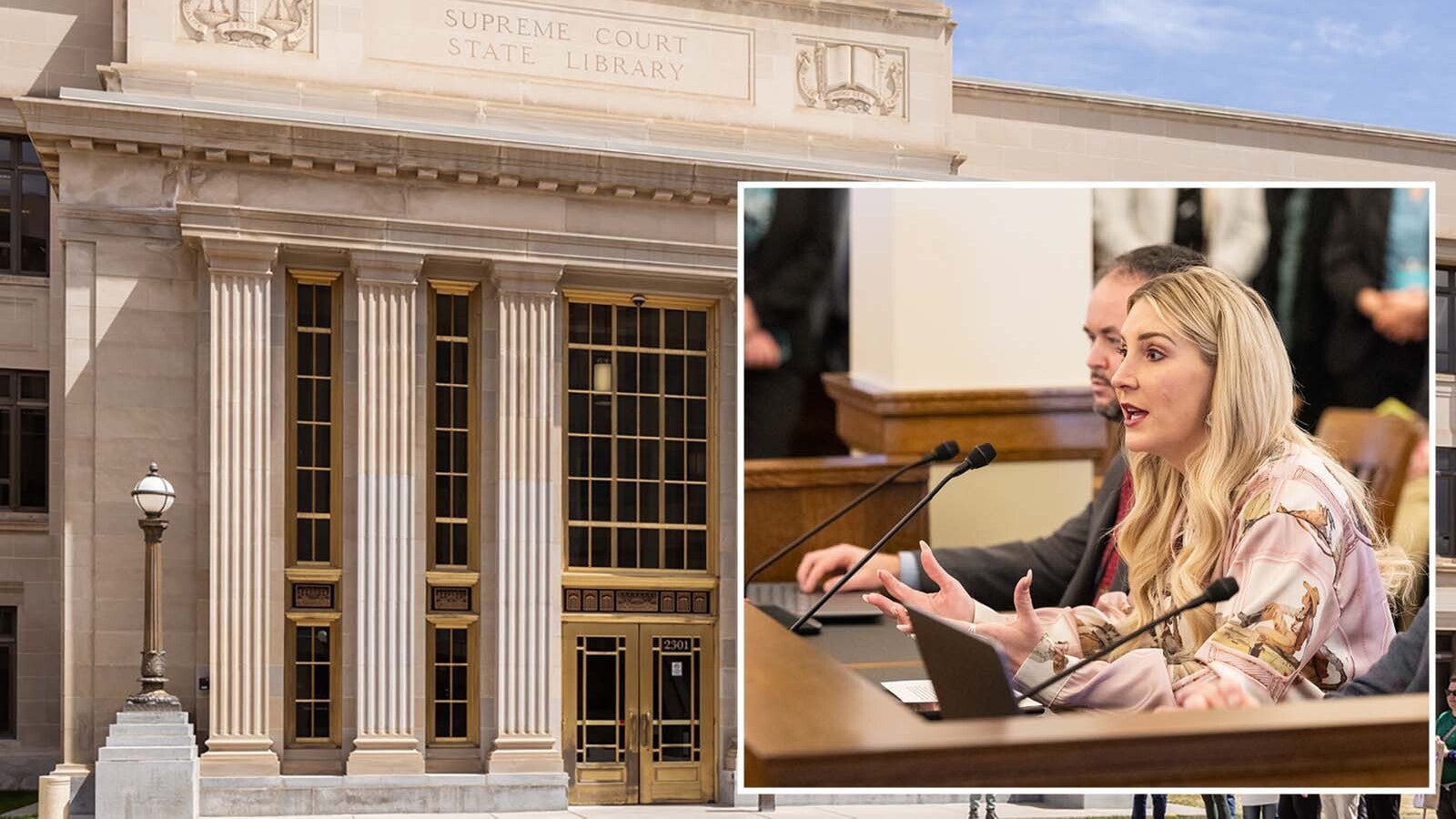U.S. Rep. Harriet Hageman isn’t buying the results of U.S. House Speaker Kevin McCarthy’s negotiations with President Joe Biden on the debt ceiling dispute.
On Tuesday morning, a spokesperson for Hageman told Cowboy State Daily that she is a “no” vote on the debt ceiling legislation as currently written.
Hageman joins some of the most conservative members of Congress in opposing the debt ceiling deal. Some have accused McCarthy of caving to the White House in exchange for superficial compromises that do little to enact real change.
“It’s not just that every Republican should vote against it. It’s a little bit more than that. This is a career-defining vote for every Republican,” said Rep. Dan Bishop, North Carolina, at a Monday House Freedom Caucus press conference.
U.S. Sens. John Barrasso and Cynthia Lummis did not immediately respond to a Cowboy State Daily request for comment.
McCarthy Backlash
Some conservative members of the U.S. House are blaming McCarthy for the deal that was struck and made thinly veiled threats about his future.
Bishop said at the press conference that “no one in the Republican conference could have done a worse job” negotiating the agreement than McCarthy did.
Republican Rep. Chip Roy of Texas, described the bill as a "turd sandwich," at the press conference and said that, “no matter what happens, there’s going to be a reckoning about what just occurred.”
Hageman told Cowboy State Daily last week that “Republicans do not need to negotiate with ourselves” when it comes to the debt ceiling situation, but also said that McCarthy had “gone above and beyond” in his negotiations with Biden.
In April, Hageman voted to support a bill that would limit federal budgets to 2022 fiscal levels by cutting $4.8 trillion in spending. In exchange, the debt ceiling would be lifted through March 2024, or by $1.5 trillion, whichever comes sooner.
Under new rules this year, any Republican lawmaker can bring a no-confidence vote on McCarthy to the floor, which if passed would remove him from his position as speaker.
With a nine seat Republican majority in the House, the ultra-conservative bloc of the party could block the passage of the debt ceiling legislation as written.
Deal Gone Wrong?
People from both sides of the political aisle claimed victory as a result of the weekslong negotiating efforts completed on Sunday.
Every so often, Congress must vote to raise or suspend the ceiling, so it can borrow more to pay its bills. In recent years, this process has become more troublesome, a key negotiating point for future legislation and fiscal commitments.
According to a New York Times analysis, the legislation known as the Fiscal Responsibility Act would reduce federal spending by about $55 billion next year and another $81 billion in 2025.
If approved, the legislation would allow the federal government to borrow money until well after the next presidential election in 2025. This allows the government to delay paying its bills until that date and avoids the possibility the debt ceiling fight could spill into the 2024 presidential race.
The deal keeps non-defense spending flat with a 1% increase in 2025.
Defense spending will increase by 3%, less than the 4% annual growth in inflation, a point criticized by some Republicans like South Carolina senator Lindsey Graham. Full funding for the medical care of military veterans would also increase.
Biden made a small compromise on the regulation of food stamps through the Supplemental Nutrition Assistance Program (SNAP) and those who receive aid from the Temporary Assistance for Needy Families Program (TANF). The age at which work requirements are imposed for those on SNAP was raised from 50 to 54 and the funding formula was changed for TANF.
As part of the deal, Biden and House Republicans have also agreed to expedite permitting for the Mountain Valley Pipeline, which will funnel West Virginia shale gas to the east coast.
Republicans also won on unspent COVID-19 funds, as $30 billion in unspent dollars will be clawed back for other purposes.
The bill also puts an end to Biden’s student loan repayment moratorium by the end of August, but it does not move forward with the measure Hageman and House Republicans had pushed to halt forgiving between $10,000 and $20,000 in student loan debt for most borrowers.
Moving Forward
Voting on the bill is set to start Wednesday in the House, which will be followed by the Senate. The bill faced its first major test on Tuesday in the House Rules Committee, where two of the panel’s nine Republicans signaled before the meeting they would oppose bringing the bill to the House floor for a vote, according to CNBC.
If the bill cannot pass the House and Senate by June 5, the Treasury Department projects the United States would be unlikely to have enough money to meet its debt obligations.
Contact Leo Wolfson at Leo@CowboyStateDaily.com





